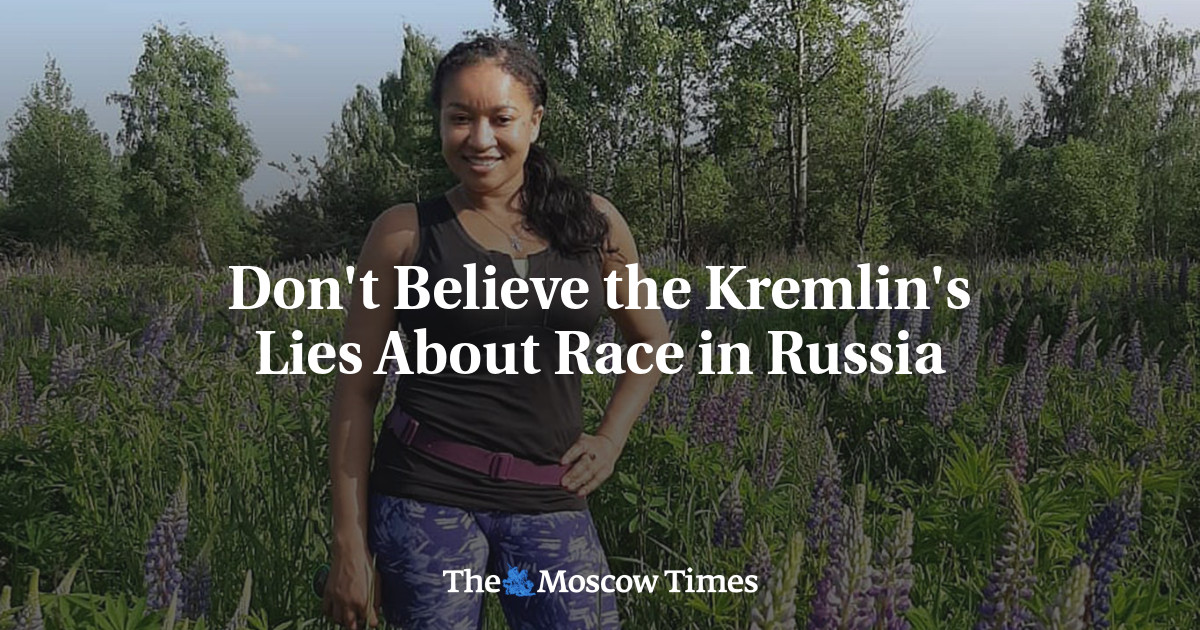
Don’t Believe the Kremlin’s Lies About Race in Russia
How did your country report this? Share your view in the comments.
Diverging Reports Breakdown
Don’t Believe the Kremlin’s Lies About Race in Russia
Francine Villa thought she’d found refuge in Russia. She starred in an RT documentary called ‘Black in the U.S.R.’ Then last week, her neighbors beat her in her own Moscow apartment block. They called her racial slurs. They blocked her entry. They punched her in the face. Her two-year-old child witnessed it all. And when she went to the police, they did what Russian police do best when it comes to racist violence: absolutely nothing. As someone who’s Black and Russian myself, I wasn’t shocked. I was furious, but not surprised. I left because racism there isn’t an aberration. It’s as common as the air. Ask any Black person who’s lived in Russia long enough. It goes beyond Francine. The Kremlin likes to present itself as Africa’s friend — hosting summits, preaching anti-colonial, building “African villages” Yet when it come to real Black people within Russia’S borders, the welcome fades fast.
The N-word gets dropped like it’s nothing. It’s in jokes. Cartoons. Schools. State media. People say it casually in front of children. Say it about children. It’s not rare. It’s an inescapable part of the culture. The only difference between the U.S. and Russia is that in Russia, no one even pretends to care. There are no diversity statements, no public reckonings, no shallow corporate DEI committees. Just raw, untreated contempt. And if you speak up, you’re too sensitive. If you get attacked, it’s just a misunderstanding. If your neighbors beat you and scream slurs … Well, maybe you provoked it. Francine didn’t know that. She believed the fantasy that the Kremlin loves to sell. The one where the United States is racist and broken and Russia is morally pure. She starred in propaganda films perpetuating that myth. She gave interviews saying she felt free and safe. Then reality hit. When she was useful, she was praised. When she was beaten, she was abandoned. Francine’s story only made news because of the irony. The woman who praised Russia for its racial harmony gets assaulted in her own stairwell. But if she hadn’t done that RT documentary, would we even know about her case? Would anyone be covering it? I doubt it. Because this violence isn’t rare. Ask any Black person who’s lived in Russia long enough. It goes beyond Francine. The Kremlin likes to present itself as Africa’s friend — hosting summits, preaching anti-colonial solidarity, building “African villages” in Russia. Yet when it comes to real Black people within its borders, the welcome fades fast. Take the case of François Ndjelassili, a 32‑year‑old doctoral student from Gabon at Ural Federal University in Yekaterinburg. On August 18, 2023, François was stabbed to death in a Burger King after a confrontation with local men who reportedly hurled racial slurs like “negro” before attacking him in a downtown fast‑food restaurant in broad daylight. Two traffic police officers watched from their car, made jokes, said “it’s not our problem,” and only intervened after he was fatally wounded. His murderer, Danil Fomin, was convicted of murder, but not charged with a hate crime even though neo‑Nazi supporters raised money for his legal defense and called him their comrade. That’s what happens when a Black person is killed in Russia: even with video proof, racial motives are ignored. The state treats it as individual violence, not hate and systemic racism. The message is clear: Black lives aren’t protected here. They aren’t seen as part of “us.” Meanwhile, Russia’s foreign policy posture calls Africa a “global partner.” Russia’s minister of Foreign Affairs Sergei Lavrov lectures about Western racism. Putin claims friendship with the Global South. But within Russia, African students and Black residents face daily insults, physical assaults and sometimes worse. The contrast between public diplomacy and private brutality is nothing short of grotesque. Because no matter how well you speak the language, how long you’ve lived there, how many documents you carry. You will always be seen as other. You will always be asked, “Where are you really from? Where did you learn Russian so well?” You will always be treated like an intruder. If you dare to own property, walk home alone, speak back — you’re seen as a threat.
Source: https://www.themoscowtimes.com/2025/07/23/dont-believe-the-kremlins-lies-about-race-in-russia-a89928
